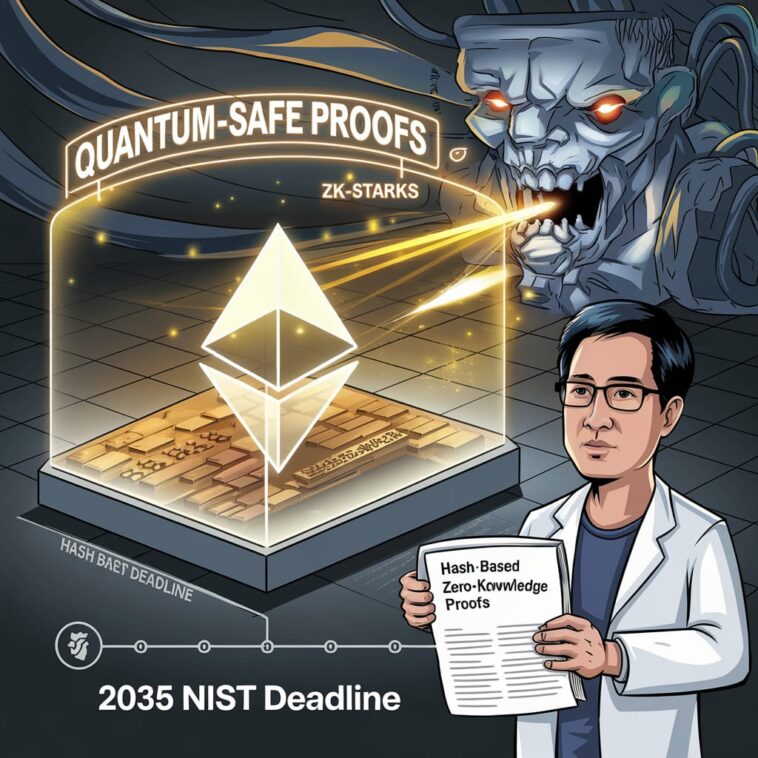Quantum computers are evolving, thanks to companies like Google and Microsoft. But with that progress comes a problem—how do blockchains like Ethereum stay secure?
Dr. XinXin Fan from IoTeX thinks he has the answer. In his award-winning paper, he explains how hash-based zero-knowledge proofs could protect Ethereum from quantum attacks while keeping things simple for users.
What’s the Danger?
Ethereum uses a system called ECDSA to secure transactions. It’s solid for now, but quantum computers could break it someday. Dr. Fan’s idea? Attach a special proof, like ZK-Stark*, to each transaction. This keeps it secure without making users change their wallets.
Easy Transition for Users
The beauty of this approach is its simplicity. “You don’t need a new wallet—just a quantum-safe proof attached to your transactions,” Dr. Fan says. Making this upgrade smooth is crucial for both security and usability.
Why Now?
NIST recently announced that systems need to be quantum-safe by 2035. Earlier this year, researchers in China claimed they cracked encryption using a quantum computer, but it was only a weak 22-bit key—not the strong 2048-bit keys we use today.
Experts agree: quantum computers aren’t a threat yet, but preparing early is smarter than waiting too long.




